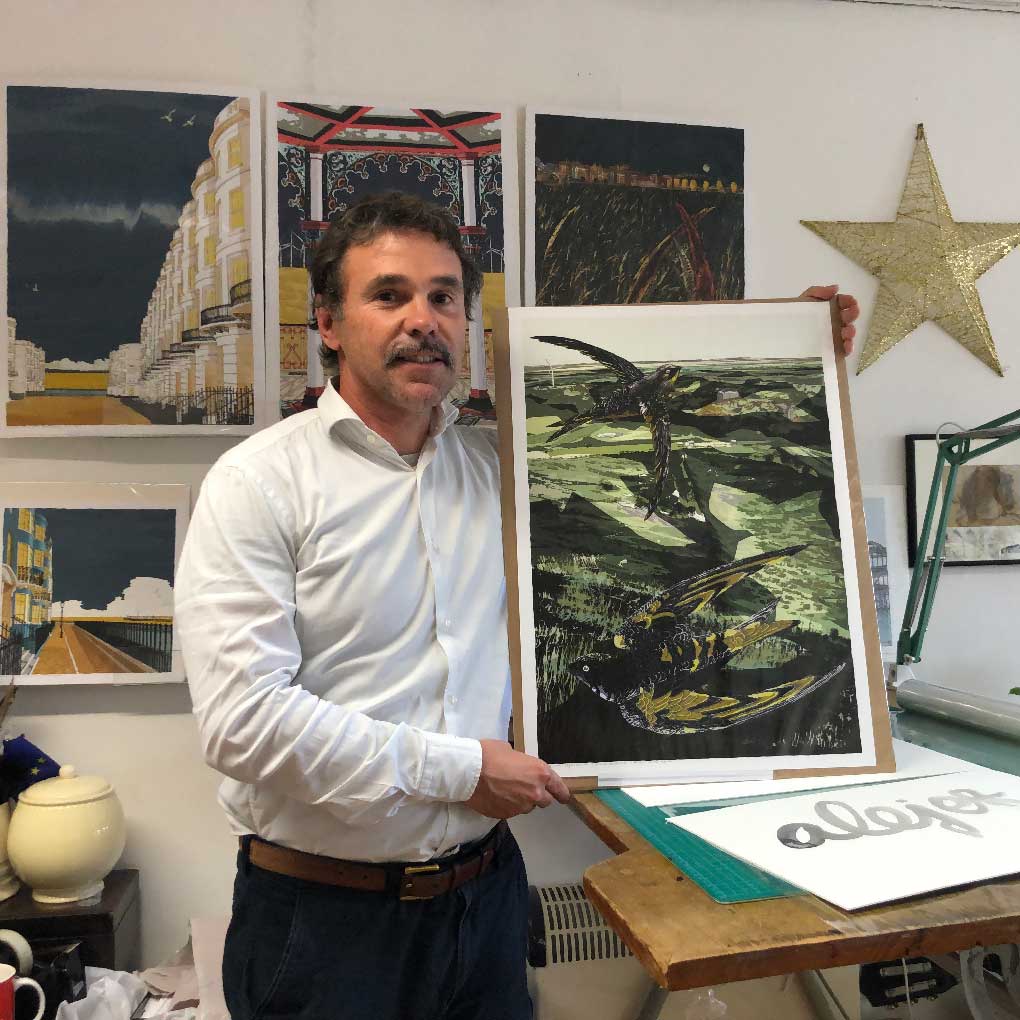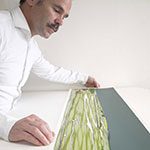My first participation in the Artists Open Houses Festival in Brighton was in 2010. Since then, I’ve taken part on many occasions. This year, for the first time, I’m opening my own flat.
My theme: “Landscapes of Birds.”
Landscapes imagined from the perspective of birds—aerial views, migratory paths, nesting places.
The Artists Open Houses team recently approached me with a few questions for their blog. Please read the full article below.
Artists Open Houses blog Nov 2022
You’ve taken part in the Artists Open Houses for many years, but we’re really
excited that this year, for the first time, you’ve decided to invite visitors to your own home. Would you like to tell us what led you to that decision?
I am an architect. In early 2020 I renovated my flat according to my own design. I moved in last December, so it felt only natural to participate in Artists Open Houses Festival here in Brighton. For a couple of years, I used to rent out my apartment for short stays as ‘alej ez artist residence’. The Independent in June 2021 included it as one of the top ten stays in Brighton in an article titled ‘Brighton for all tastes and budgets’ which described my apartment as “staying in a part of Brighton’s Regency history – plus there’s the double-height ceilings and sash windows for added opulence. A smartly designed one-bed flat on the square with a compact kitchen and shower room, and decorated with art by the owner that’s available
to buy”.
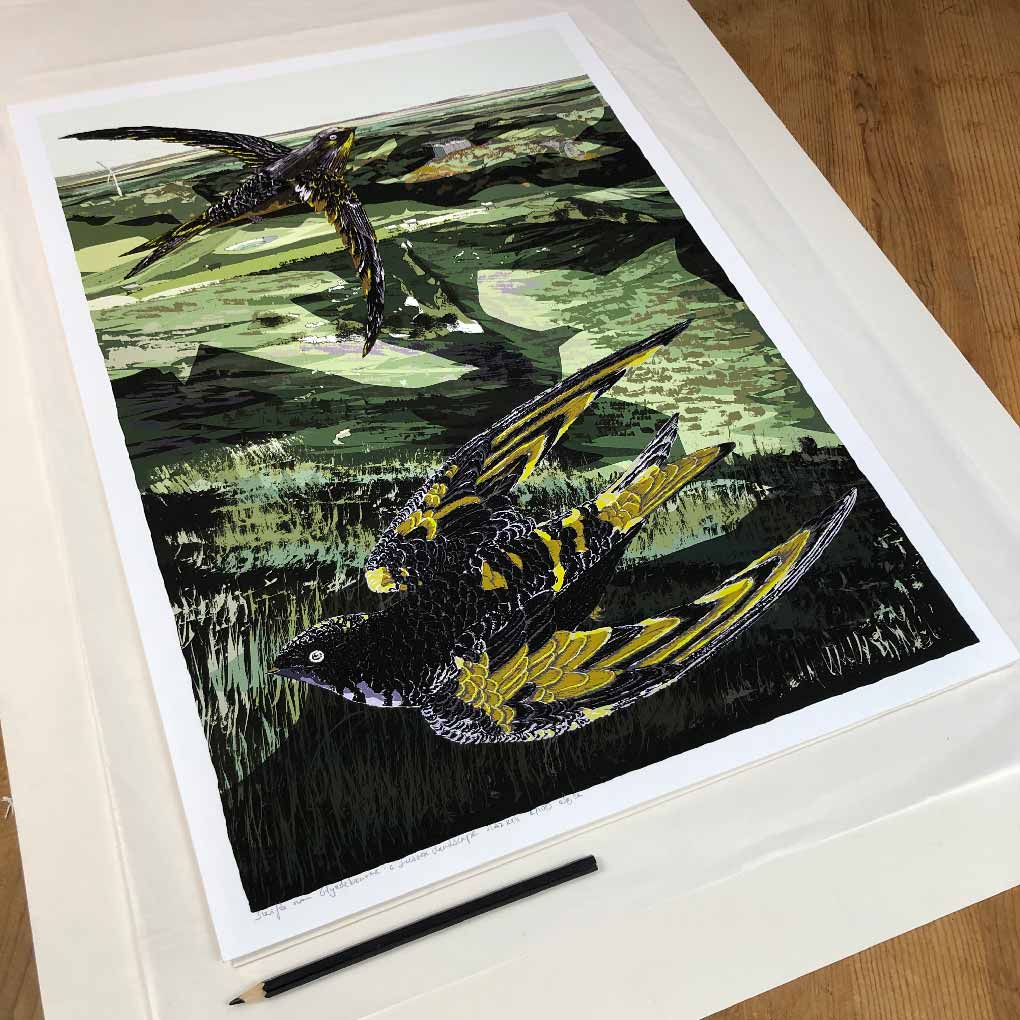
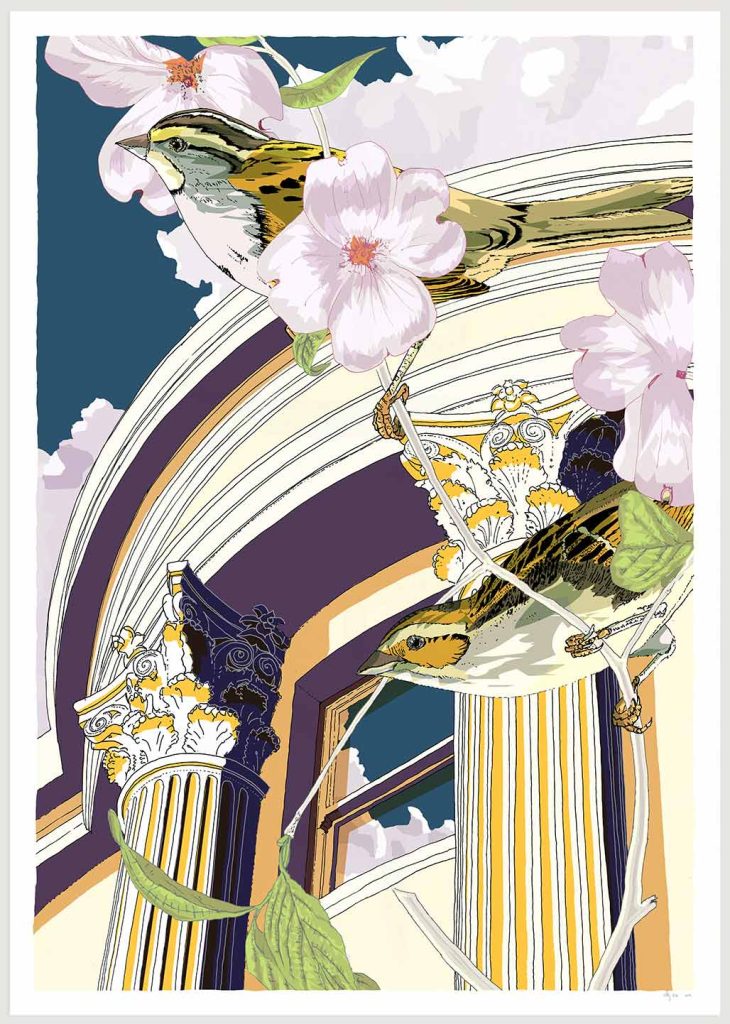
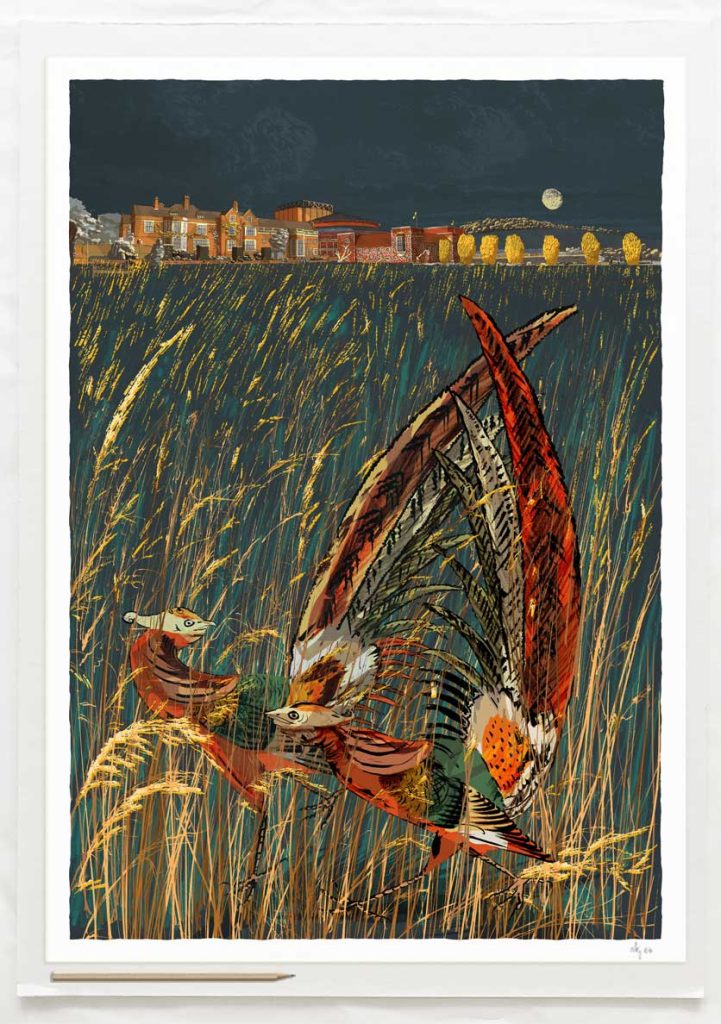
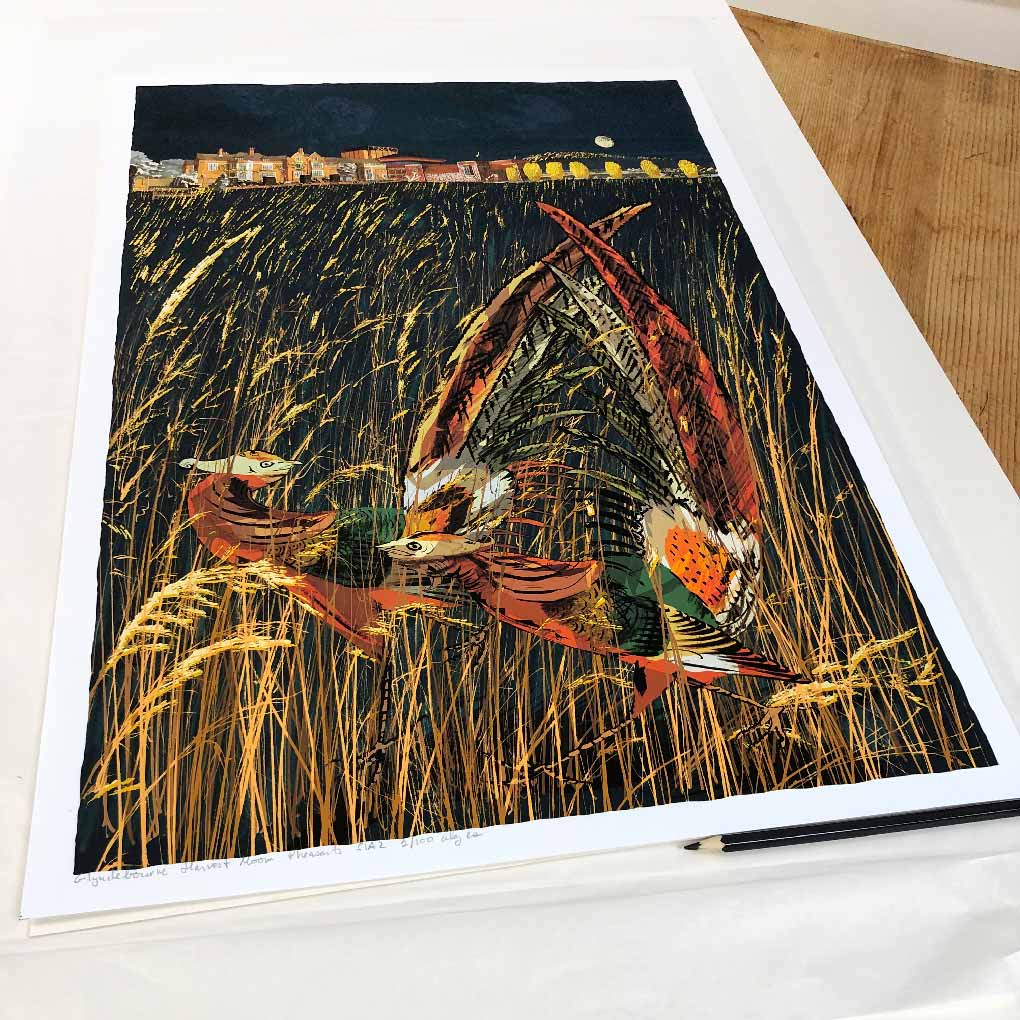
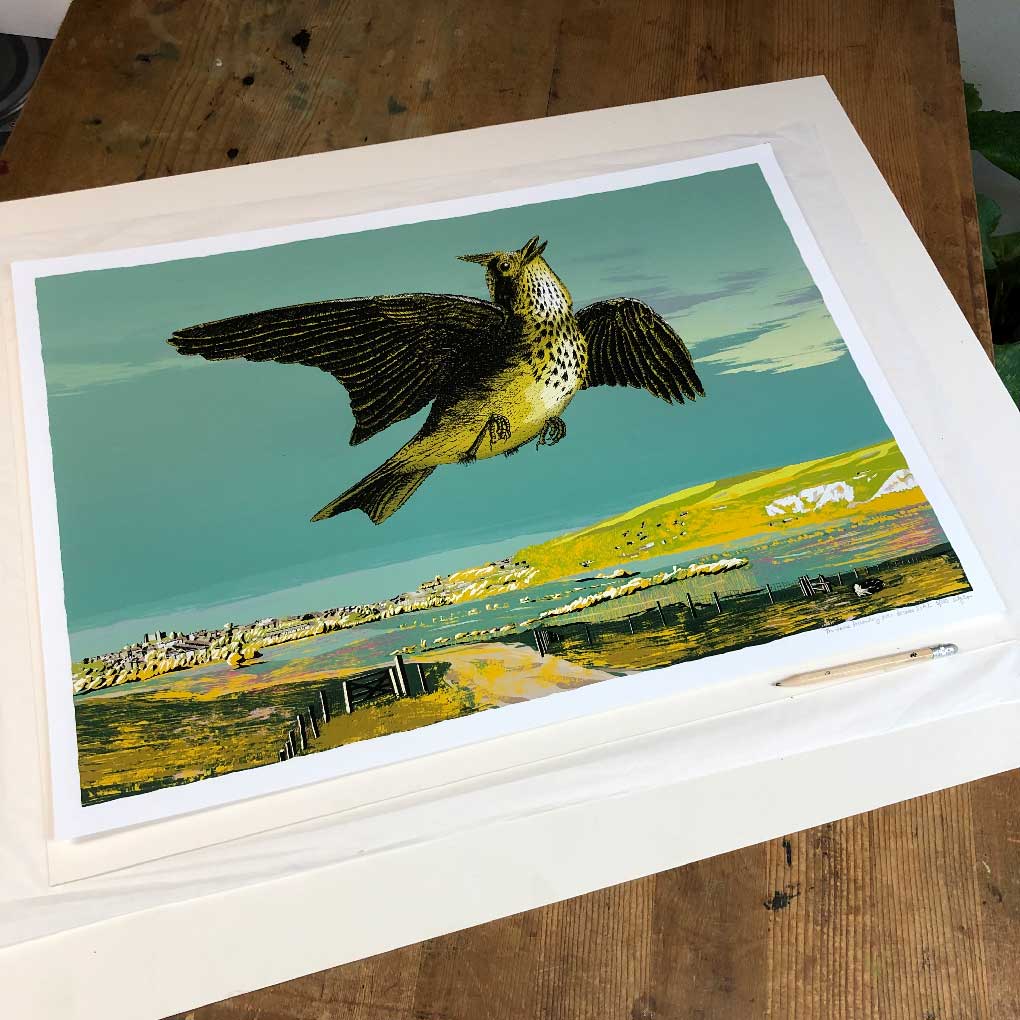
In what ways do you think showing work in your own home will be different from showing in a gallery or other people’s Open Houses?
I am double excited to talk architecture and show my home which is now full up with lots of objects
that influence my work: Staffordshire figure ceramics, art by Erte and Jean Cocteau, many antique 19th century books on art and poetry, Marcel Brewer modernist chairs and a lovely Ercol armchair that I have upholstered with my own fabric design. It is a tiny space but chock-a-block with personal paraphernalia.
Can you tell us about the new work that you will be exhibiting?
I have put together a new series of prints that is rather eclectic. In some, I celebrate 19th
century illustrations of wildlife, especially birds. You can often see design where architecture, natural landscape and ornithology are considered as one. Other new prints look at the beauty of the Uk natural and man-made landscape.
I started this collection early this summer, during my visit to friends Scarlett Rebecca, an artist
and educator based in North Wales and partner Jake Spicer, author of ‘How To Draw: Sketch and Draw Anything, Anywhere’ and many other books. They run ‘Mawddach Art Residency’, which offers space for thought, reflection and creation. Immersed in their creative
environment I started creating this eclectic collection of new prints. It is somehow a conglomerate of ideas I have noted through years that finally found their initial expression during my visit. It expresses interests in subjects from environmental conservation
to spirituality and astrology. When very different subjects run parallel in your mind, there is a rubbing edge where connections are forged and there through my idiosyncratic curiosity, I find there is scope for new creations.
With reference to my ornithological prints, I found the second volume of a lavish 1966 publication
that reproduced the famous original watercolour paintings by John James Audubon for ‘Birds of America’,
in a second-hand bookshop. With my curious mind I realised that often one of his images would take years to create and various artists would be involved. Often Audubon would create the main image and other artists would do the plants, while another would
add the landscape. Initially when you look at them you instantly think, erroneously, that it was a design conceived in one go, but no. With this in mind I have created a collection of new prints that follow this system and create a scene that collages a landscape
with a habitat with its characteristic plants and birds. The result are prints that mimic a theatre stage design where each subject is depicted in its best light.
The images are eclectic but my style, hopefully, binds them together. I love the use of ink. My
practice involves first drawing in ink monochrome drawings on A3 sheets of specialised marker paper with calligraphic brushes, fine-line ink pens, sponges, sandpaper and other materials. I scan these to form the main line work and patterns in the final print.
The second step is the addition of colour digitally, which is often a longer phase and rather complex mainly because it is very flexible, dynamic and powerful. Towards the end of this long process, the design clicks in my brain, touches my soul with emotion
and my job is done.
You are originally from Spain, can you tell us how moving to Brighton, and Sussex more generally, has influenced your work?
I find that inspiration comes from two sources of experience. Direct experience of the natural
world: I love my walks in the South Downs, the hikes up and down the coastal chalk cliffs and the leisurely seafront promenades of our towns. These places feature prominently in my work.
Occasionally the same reference co-exists in two places: in Seville, the town where I grew up
and here in Brighton, where I have lived for more than ten years. This is the case for the Brighton Bandstand. The extraordinary design with its lobular arches and fluted capitals with crossed natural leaves has been compared to the Alcazar in Seville or the
Alhambra in Granada. Since I was born in Granada and lived in Seville, the vision of the Bandstand is like a home away from home.
Secondly, I find that inspiration flourishes from direct experience to exposure of the work of
other artists. There is so much to enjoy and learn from the work of Spanish artists such as Goya or Picasso and English artists, from Samuel Palmer to David Hockney, Ravilious, Ben Nicholson, Eric Slater, Ivon Hitchens, and many more.
What are most looking forward to in opening your own home?
I am very sociable, so I love meeting people. Open House is usually a happy occasion when people who are interested in art come through your door. The Artists Open House booklet shows and describes your work so hopefully visitors will be on a similar wavelength.
Feedback is also crucial – a time to take notes and see what works and stimulates interest. Rarely
does an artist have so much exposure to criticism and it’s a great time to test new work. You often hear that an artist is wonderful but then a new body of work comes along which maybe isn’t so interesting. I am always innovating – to get things right you
need to get many wrongs too.
Is there anything else you would like to tell us?
I think I have said enough. Please come to my Artist’s Residence and check it out yourself!
Love live, love art!
See more details of my open house in this link: Alej ez Artist Open House Winter 2022
